A wedding is the ceremony in which two people are united in marriage. Wedding traditions and
customs vary greatly between cultures, ethnic groups, religions, countries, and social classes. Most
wedding ceremonies involve an exchange of wedding vows by the couple, presentation of a gift
(offering, ring(s), symbolic item, flowers, money), and a public proclamation of marriage by an
authority figure or leader.
Philippines:
In Philippines the wedding custom is that the bride cannot meet the groom a day before their
wedding. If they do so it means bad luck according to them. There is another belief that siblings
cannot get married on the same year because according to them one will meet an accident if they
do so.
Japan:
In Japan bride and groom takes nine sips of sake, then they become husband and wife after the first
sip, both of them take a sip at the same time, they are very careful while putting the cup down on the
table at the same time.
Sindh(Pakistan):
In Sindhi families especially Syed, parents of the bride find groom for their daughters in their own
families, tribes sometimes parents could not find any groom then what they do is they cover the
head of their daughter and teach her the Holy Quran. After that the whole life girl attaches with the
Quran and this is known as marriage with Quran.
Baluchistan(Pakistan):
On engagement, ladies from bride's side collect beautiful handkerchiefs and put them on the
shoulder of brother or cousin of groom. This means that from now onwards our bride is yours
forever. After that groom's relatives start firing in the air for being happy.
Khyber Pakhtunkhawa (Pakistan):
Marriage starts with an engagement.Walwar or head-money determined at the time of
engagement. According to Jirga's decision the groom's parents pay cash to the girl's parents on the
day of marriage. The engagements held in childhood age, because of the reason that if any one
becomes physically disable after birth may also go through this process. If the bride and groom
become disabling after birth and engagement, their nikah cannot be cancelled.
Kalash(Pakistan):
Elopement is mostly practice. Married woman also elope because they are married at an early age.
When woman changes husbands, she writes letter to her husband children and asks how much her
current husband paid for her. This is because the new husband must have to pay double if he wants
her.
Greek Customs:
Mostly three days before the wedding, there is a celebration called Krevati (Greek for bed) in
couple's new home. In Krevati, family members of the both bride and groom put money and young
bouquets at their church, they become husband and wife, and then best man puts the wedding
rings and crowns on the couple. Then couple drinks red wine.
Hindu Wedding Customs:
The Hindu wedding is a three-part ceremony. The first part is the "kanyadaan," in which the bride's
parents wash the couple's feet with milk and water. Second is the "hastamelap," or joining of hands.
A piece of white cotton around the couple's shoulders is to signify their marriage bond. At last the
couple goes around a fire several times, holding grains of rice, oats and leaves, representing the
blessings of wealth, good health, prosperity and
Marrying a Tree (India):
In India the women which are born as Mangliks (astrological combination when Mars and Saturn are
both under the 7th house) are known to be cursed and a worst cause for their husband's early death.
In order to get rid of this curse they must be married first with a tree. Then the tree is destroyed and
the curse is broken.
In South Korea the groom's foot is beaten by the stick. The foot beating takes place after the
wedding ceremony. It's only a beating of his feet called a bastinado or falaka, although it is very
painful, but funnier.
Chinese Wedding Customs:
In some areas of China in order to finalize the wedding date the bride
and groom are asked to kill a baby chick while holding the knife together. Then they kill the chick
and inspect its liver. If the liver looks good then they are allowed to set a date. If not, then they have
to repeat the process until they find a satisfactory liver.
African-American:
Today, broom-jumping is most often found in African-American weddings, the tradition rooted in
the days of slavery when marriage between enslaved men and women wasn't legally sanctioned.
Peru:
In Peru, single female guests take part in a tradition a little sweeter than a bouquet toss. Charms
attached to ribbons are tucked between the layers of the wedding cake. Before the cake is cut, each
woman grabs a ribbon and pulls. At the end of one ribbon is a fake wedding ring. The guest who
picks that ribbon is said to be next in line for marriage.


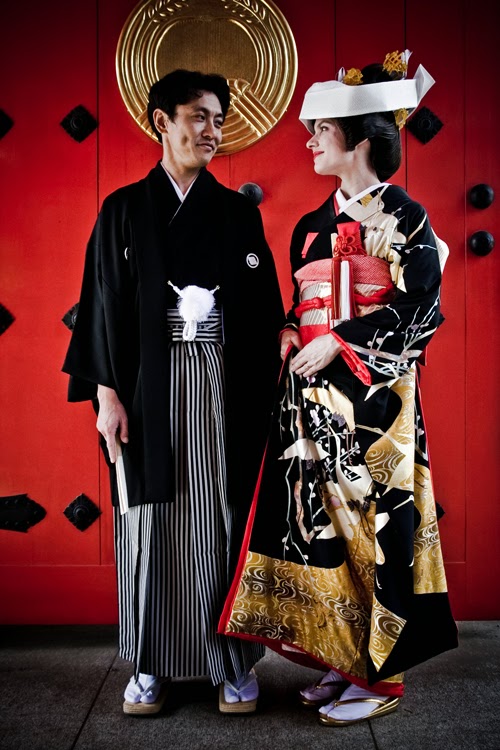
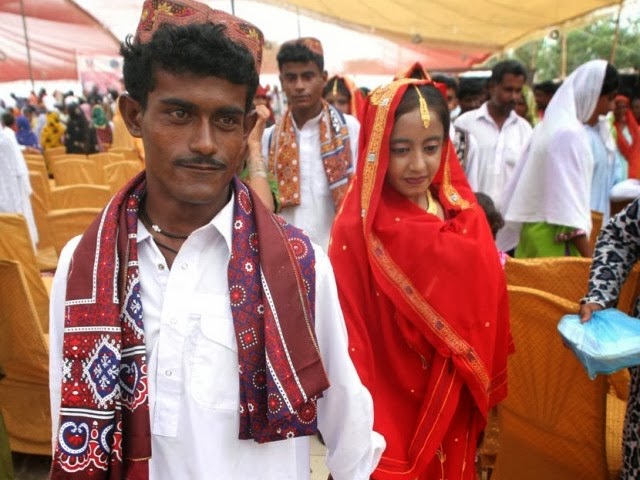



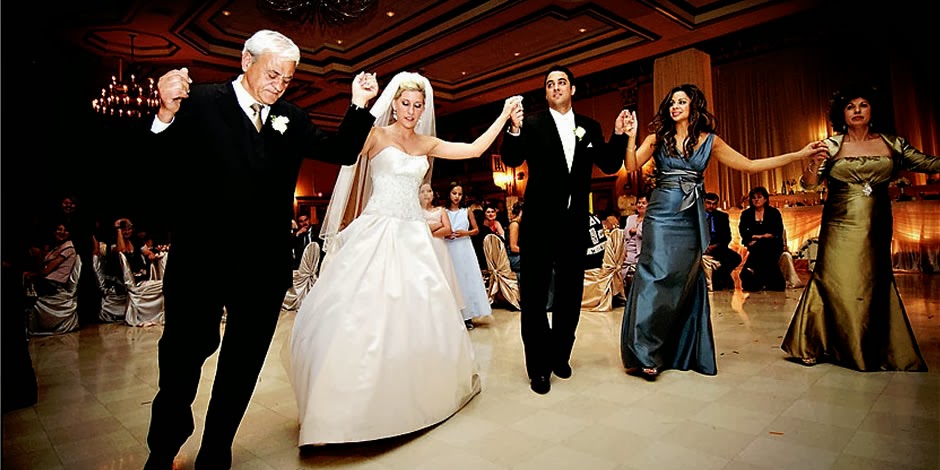

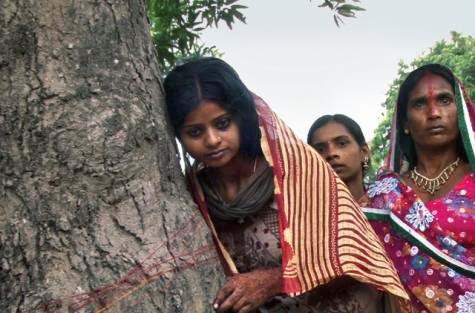
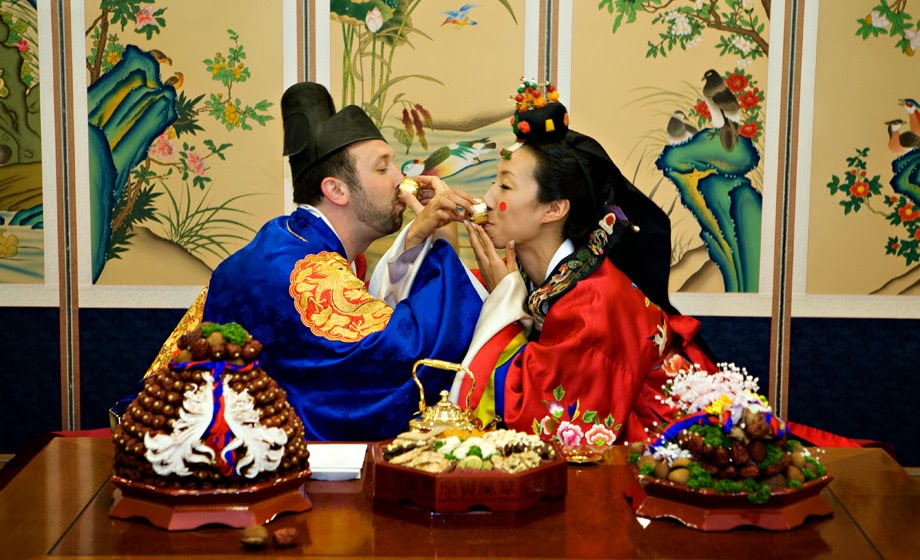
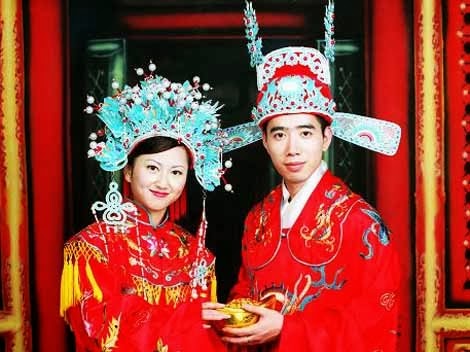
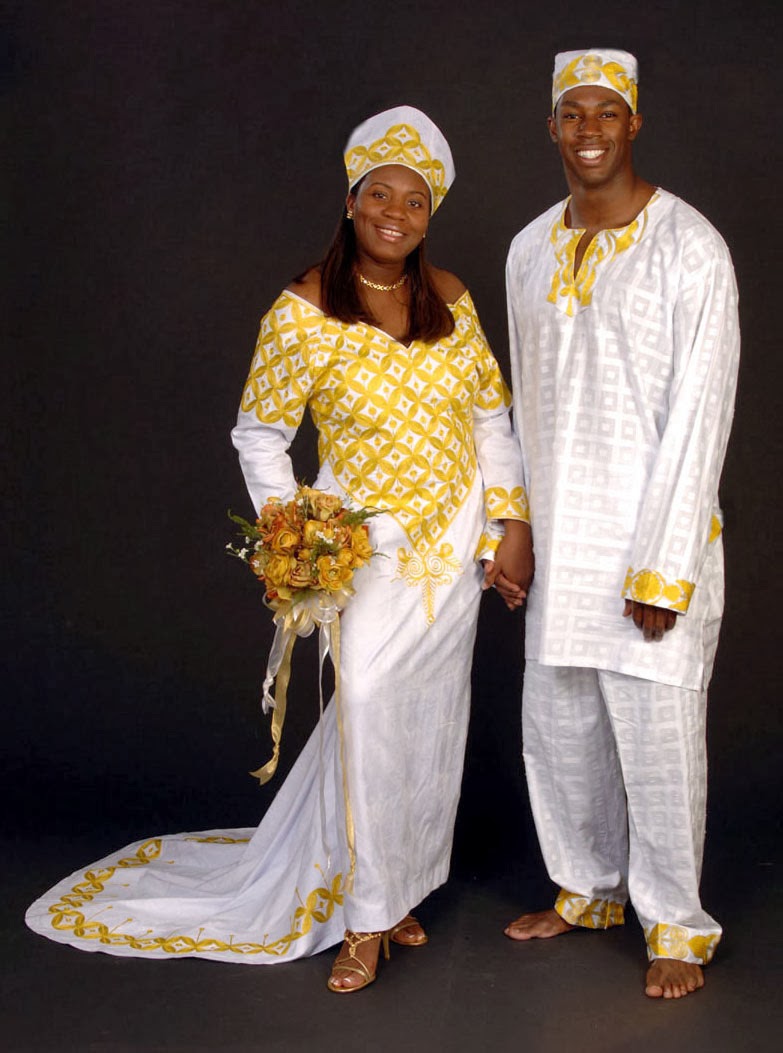
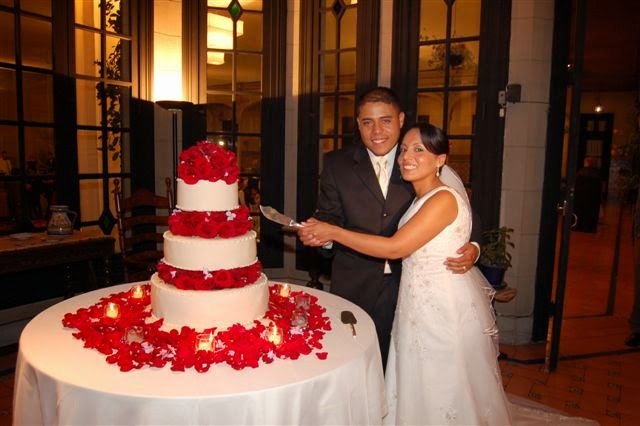
Comments
Post a Comment